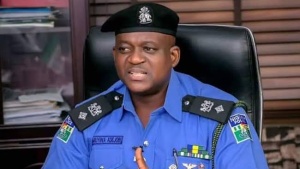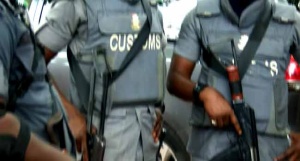In a surprising revelation, Secret Meetings Between Terrorist Leaders and Nigerian Government Representatives have been exposed, leading to concerns about national security and government transparency. According to confidential sources, at least seven leaders of terror gangs responsible for a wave of abductions, killings, and mass displacements in Nigeria’s troubled North-west region recently attended these covert gatherings.
The largest meeting occurred in Fankama, a community in Faskari Local Government, Zamfara State, as reported by two anonymous security sources. Despite the Nigerian government’s denial, a soldier who was aware of the meetings confirmed their occurrence but chose to remain anonymous due to a lack of authorization to speak to the press.
This revelation came to light shortly after Governor Dauda Lawal of Zamfara State accused the federal government of negotiating with terrorists in his state without his knowledge. Governor Lawal, a member of Nigeria’s main opposition party, the Peoples Democratic Party (PDP), has firmly opposed negotiations with terrorists, in stark contrast to his predecessor, Bello Matawalle, who is now Nigeria’s Minister of State for Defence. Matawalle’s tenure as governor was marked by negotiations with terrorists, coinciding with a surge in insecurity within the state.
The Fankama meeting, which took place on September 18, involved the participation of seven notorious terror gang leaders. These leaders, including Ado Aleiro, Yusuf Yellow, Masume, Alhaji Bandi, Alhaji Kabiru, Goma Tashin Like, and Idi Muwange, have been responsible for numerous heinous crimes, including cold-blooded murders and kidnappings.
While the exact nature of the discussions during the Fankama meeting remains undisclosed, videos and photos from the gathering prompted Nigeria’s defence headquarters to announce an investigation into the soldiers seen interacting with the terrorists.
In one of the videos, Ado Aleiro, a self-confessed serial murderer, sat alongside other insurgent leaders, openly boasting about his brutal actions. Yusuf Yellow, Aleiro’s cousin and a leader of an independent terror group, was accused of orchestrating numerous kidnap-for-ransom operations, further contributing to the region’s instability.
Mr. Masume, the chief outlaw of Munhaye Forest, extended his criminal activities to various areas, including Sabuwa Local Government. Similarly, Messrs Bandi and Kabiru operated in the Faskari/Sabuwa axis, perpetuating violence and terror.
The Fankama meeting involved “officials” from “Abuja,” identified as Bello and Muhammad Auwal. In videos, Mr. Auwal introduced himself as a representative sent from Abuja, emphasizing the government’s commitment to negotiations and peace. He detailed ongoing discussions, which included addressing issues related to kidnapping, highway attacks, and the killing of rural residents.
Despite these revelations, the government asserted that no monetary transactions occurred during the negotiations. Instead, the delegation reportedly collected the names of arrested individuals associated with the bandits, promising to address the matter with the federal government.
The Defence Headquarters vowed to investigate the involvement of soldiers in these negotiations, reaffirming their commitment to lawful measures aimed at restoring peace in Nigeria. The military highlighted the positive outcomes of efforts to encourage bandits and other criminal elements to surrender their weapons.
While the Nigerian Army declined to comment on the negotiations, citing that such decisions are made at the national strategic level, questions surrounding the secret meetings between terrorist leaders and government representatives persist, raising concerns about the nation’s security and counter-terrorism strategies.










